19 best British rock songs to test your hi-fi system
Britain rules the (air)waves
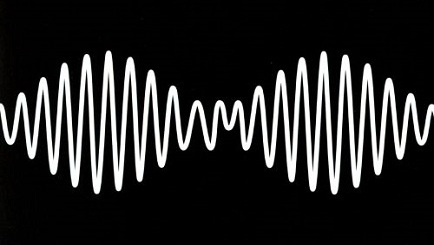
Nobody rocks like the British. Beneath the sophisticated exteriors and illusions of class, refinement and tight-lipped reserve, not to mention a rich history of manners, etiquette and entrenched Protestant repression, lies a single heart beating to the common rhythm of rock.
That beat may have become a little subdued over the years since Brit-rock’s pomp in the ‘70s or the cool indie revival of the ‘90s, but there’s no question that we Brits have always had an unshakable affinity for silly haircuts, loud guitars and, occasionally, some very bad behaviour.
Nothing tests a system like a great rock track, the Brits’ natural inclination towards experimentation and progressivism lending itself perfectly to a rich culture of challenging, complex and often utterly bizarre musical output.
From the Beatles to the Stones, Pink Floyd to Led Zeppelin and Oasis to Blur, there may not be another country on the planet that can rival this Sceptred Isle’s affinity with classic rock. For getting the best out of your speakers, you could do worse than these epic, iconic and sometimes downright ridiculous compositions.
- Listen to our best British rock songs playlist on Tidal
Foals - Inhaler
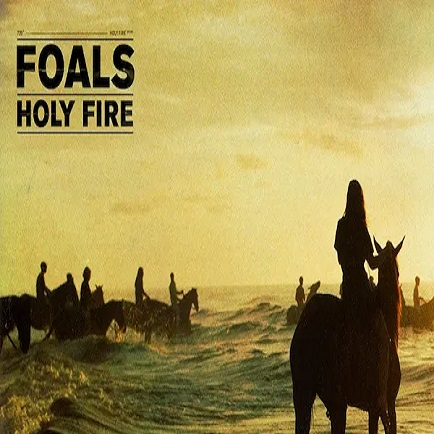
By Lewis Empson
Foals have been an integral part of the British indie rock scene for over 15 years now, and in that decade and a half they’ve produced some iconic rock anthems. The obvious choices are of course My Number, Spanish Sahara and What Went Down, but for me, it's Inhaler from their third studio album Holy Fire that takes the cake.
A track that starts with a warping plucky guitar and fairly low-key vocals soon becomes a crashing, thunderous rock anthem with lead singer Yannis Philippakis practically screaming the lyrics over a truly addictive guitar riff. As well as being a great rock song, it's also an excellent way to test the dynamics and timing capabilities of your system thanks to its range of dramatic volume shifts and persistent drum beat.
Get the What Hi-Fi? Newsletter
The latest hi-fi, home cinema and tech news, reviews, buying advice and deals, direct to your inbox.
Motörhead - Ace Of Spades
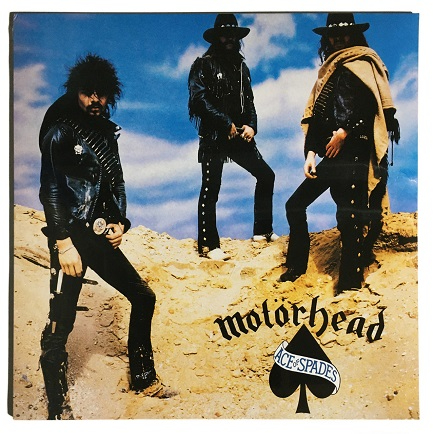
By Chris Burke
What could be a better test of your system's timing than Lemmy and the boys’ blisteringly fast 1980 anthem? At the core of this crunching beast of a tune is Lemmy's over-driven bass guitar, locked in with Philthy Phil's relentless drum hits and speed-driven fills, while Fast Eddie's guitar riff tenaciously follows the track's rapid pace from the off. A good system will keep things knitted together even as the band sound like they're constantly on the very edge of a train wreck, such is the runaway sense of abandon the song conveys.
There's more here to pick out too, and if your system is capable when it comes to information retrieval, the rapidly clacking woodblock that accompanies the drums in the breakdown (what Lemmy would refer to as the 'tapdancing section') and the off-kilter cymbal crashes should be present and distinct. Among it all, you should pretty much be able to tell how many cigarettes Lemmy had smoked that day from the growling huskiness of his gravelly vocal performance.
Yes - Owner Of A Lonely Heart

By Harry McKerrell
Rock, broad and nebulous term that it is, isn't all about screeching guitars and wailing frontmen (or is it the other way around?). The slippery category spans thousands of variations, iterations and styles, from punk rock to teen rock, grunge to nu-metal, glam to psychedelic.
Yes' Owner Of A Lonely Heart sees that definition stretched across the musical spectrum, a tricky-to-pin-down number that seems to straddle multiple genres while simultaneously completely defying categorisation. Guitarist Trevor Rabin's bold, meaty guitar intro hints at a hefty rock workout before the track's funky, almost disco-esque sensibilities take over. Into the mix come thumping drum sounds, almost incongruous samples and a relentless, bassy hook. Not only do you want everything to feel as though it has space amid the many contrasting layers and textures, but you need to make sure your system is keeping up with the track's funky, driving beat.
Queen - Hammer To Fall
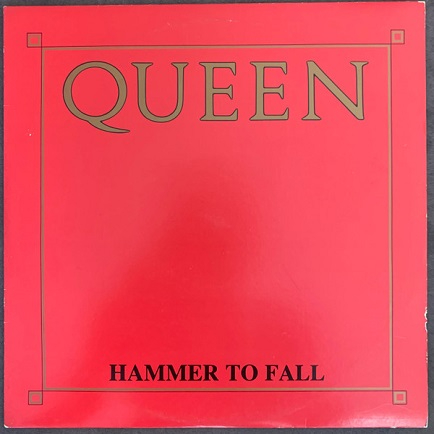
By Harry McKerrell
There’s barely a human alive who doesn’t have at least some affection for the mighty Queen. Despite their ludicrous theatricality and unmistakable operatic influences, the legendary quartet have always been a sure-fire winner no matter the track and no matter the occasion. There is, quite simply, a Queen song for every situation, and chances are it’s a stone-cold belter.
While we could have chosen from the dozens of cast-iron classics released by one of this nation’s most iconic artists, Hammer To Fall is a slightly left-field choice that, as the name suggests, hits you like a mallet to the cranium (in a good way, obviously). Let your system loose on that massive, crunchy guitar intro and feel the weight of Roger Taylor’s powerful percussive accompaniment as Freddie’s incomparable vocals rise above the swell. Absolutely peak Queen.
The Zombies - She's Not There
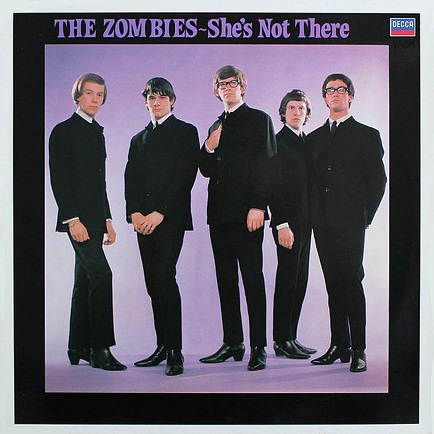
By Kashfia Kabir
Sometimes you get things right on the first try. She’s Not There was The Zombies’ very first single and UK/US hit, and it's remained a bopper of a tune to this day. Inspired by a John Lee Hooker song and the blues/jazz melodies that informed many of the early ’60s British bands’ sound, the track stands out in all of its minor key glory.
The distinctive electric piano solo, steady rhythm and close vocal harmonies all meld together in a mash-up of glorious noises that’s a joy to listen to. It’s a great test of your system’s ability to deliver all the crunch and bite of the song without sounding harsh; the tautness and agility of the deep bassline; and of course Colin Blunstone’s smooth vocals.
Muse - Hysteria

By Harry McKerrell
It’s easy to nab a system that gives you a big bass sound, but finding one that can actually do the music justice in the lower registers is far harder. No track will make a set of speakers work harder than Muse’s Hysteria, very much the Teignmouth trio’s finest hour defined largely by Chris Wolstenholme’s extraordinary, relentless bassline.
With so much going on at once, you’ll want a speaker to bring out each individual pluck of the bass so that the whole thing doesn’t turn into a turgid, stodgy mess. Matt Bellamy’s screeching guitar, meanwhile, should have a voice all of its own as it fights for centre stage against Hysteria’s now-iconic bassline. Stick it all together and you’ll have one hell of an experience. With the right equipment, of course...
Led Zeppelin - When The Levee Breaks
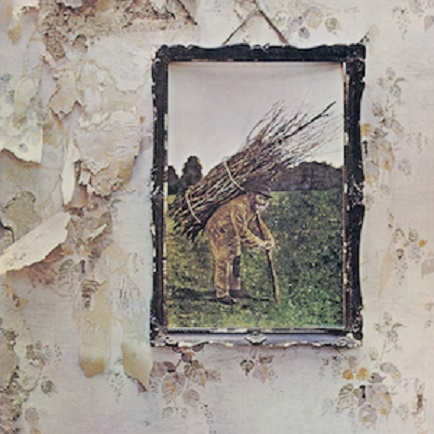
By Chris Burke
The stories behind the recording of Led Zep IV, and this track in particular, are the stuff of legend. With the help of the Rolling Stones' mobile studio, the band set up at a British country house – Headley Grange in Hampshire – and famously used its echoic, high stairwell to record John Bonham's drums. From the moment his distinctive and much-sampled drum beat kicks off this grooving blues classic, the track is a sure test of timing, dynamics and transparency. Bonzo keeps the beat tightly locked in with bass, while even his fills are superbly in the pocket of the groove – even as the guitar and vocals feel a little behind the beat, giving the track its laid-back feel.
During the drums-only intro you can feel the space around the kit, with the transients punching out with his clearly placed beats – and then, on top of that, is the 'ack-ack' echo that gives the trailing edge of the beats so much texture. This was achieved by producer Andy Johns running the drum mics through Jimmy Page's Echorec guitar pedal, and played through a talented system, it should send shivers up your spine.
Roxy Music - Virginia Plain
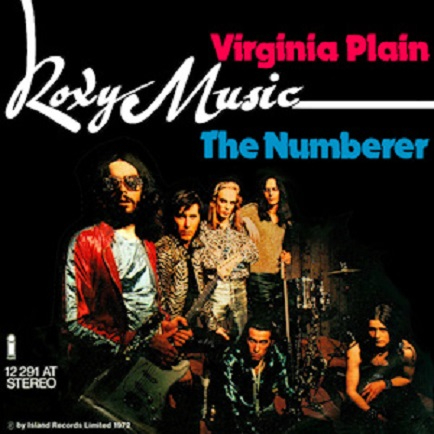
By Harry McKerrell
Beneath the utterly nonsensical lyrics and Bryan Ferry’s ludicrously mannered (though eminently enjoyable) vocal delivery, there’s a lot of superb musicianship going on behind the scenes of Virginia Plain. Punchy, crisp and ever-evolving, the track’s use of multiple interchanging instruments, including synths, an oboe and a Mellotron all dipping in and out of the song’s central marching rhythm, make for an ever-changing landscape from which any hi-fi gear worth its salt should be picking out each contributor's individual personality and tone.
Put together, Virginia Plain should have you tapping your feet so hard they’re in danger of dropping through the floor, such is the tune’s irrepressible glam rock energy. Despite its complete lack of a proper chorus, Roxy Music’s first single remains one of their absolute finest. It’s also notable for being parodied on the ’90s surreal sketch vehicle Big Train, in which Kevin Eldon performs the hit as Mao Zedong on his deathbed. It’s an association that I cannot get out of my head.
Mogwai - To The Bin My Friend, Tonight We Vacate Earth
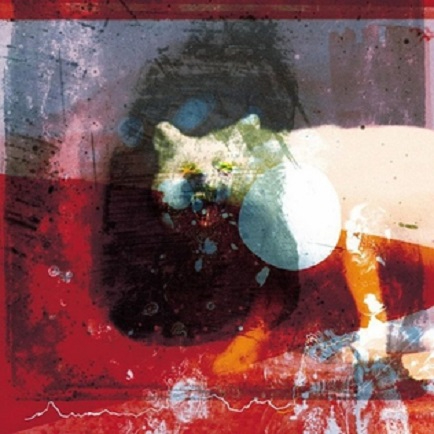
By Becky Roberts
A few years ago, it would've been easy to head straight to Mogwai's 2006 release Mr Beast and pick any track from it at random to include on this list – any one of them could stand tall on it. But then the Scottish band's As The Love Continues album arrived in 2021, and since then it has hardly had a breather in my Tidal account's library, let alone a mere gasp when I've been confronted with a new hi-fi component to play with. Ceiling Granny would be where the grooves are most worn had I owned the album on vinyl — I find its cheery melodic churning and blistering guitar screeches utterly addictive, and for me, the track is only enhanced by its title having been influenced by that scene in The Exorcist III (no? YouTube it.)
But what's even better for testing a system is actually the opening track. A test of power as much as patience, To The Bin My Friend is more or less everything Mogwai is and has ever done in a glorious, grandiose five-minute epic. Your system should be able to communicate the track's initial fragility and somberness before delivering the power, immediacy and increasing layers of the 'escape', while the most dynamically expressive kit will track that slow build from one extreme to the other over the first two-and-a-half minutes.
Rolo Tomassi - Aftermath

By Tom Parsons and Harry McKerrell
Rolo Tomassi has never sounded like the name of a band forged in the heart of Yorkshire, but the Sheffield outfit have been pumping out eclectic, critically acclaimed work for well over a decade now. While almost all of that extensive catalogue is worth discovering, the second track on 2018's definitive Time Will Die And Love Will Bury I sees the experimental rock outfit regularly switch at a moment's notice between gentle introspection and heavy, crashing breaks. The perfect candidate for pushing your hi-fi's capabilities, then.
Aftermath is comfortably the most accessible track on the album, boasting fairly indie-pop verses with gentle vocals. Despite this accessibility, the complex rhythmic pattern underneath hints at the band's penchant for technical structures, giving the timing of your system a real workout, while its sparkling, thumping chorus requires decent dynamic range and punchy bass.
Fleetwood Mac - The Chain
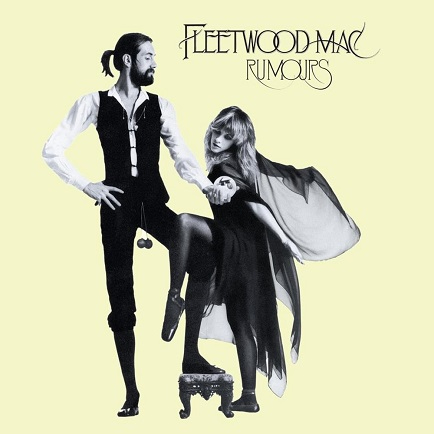
By Kashfia Kabir
As I'm sure is the case for many of our readers, The Chain – specifically that iconic bassline that starts the outro – is synonymous to me with BBC’s Formula 1 coverage. Such is the indelible power of that simple but sinks-into-your-soul bassline (and the ending guitar solo) that when I first heard the song in full, I was amazed that there was what felt like a whole different song in the three minutes preceding it. That patchwork nature is a perfect reflection of a band whose five members had different styles but came together as one, and what makes The Chain such a complex, stirring rock song that I’ll never tire of listening to.
I can’t emphasise enough how gorgeous that deep, powerful bassline sounds through a terrific hi-fi system (taut and agile, richly textured and dynamic), but it’s Stevie Nicks’ ferocious lyrics and vocals that demand just as much attention. “Damn your love/damn your lies”, “And if you don't love me now/You will never love me again” – you can feel the rage and hurt through her impassioned singing, referencing the end of the relationship with co-vocalist Lindsey Buckingham, and it’ll raise goosebumps every time. (And it’s worth seeing this incredibly visceral 1982 live performance for the full effect of Nicks’ and Buckingham’s raw power and how they’re really feeling about each other).
The Who - Baba O’Riley
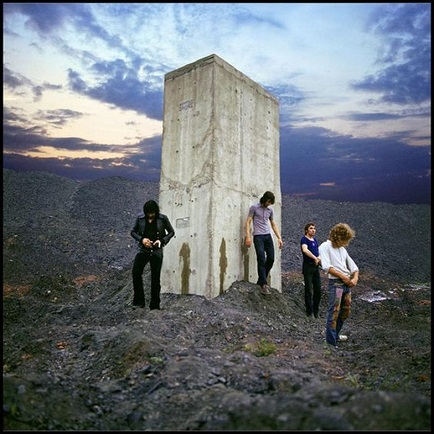
By Harry McKerrell
There’s a great scene in a small-scale American sitcom in which the protagonist, a solitary and buttoned-down fellow named Joe, discovers The Who’s signature staple Baba O’Riley. Enraptured by the music, Joe proceeds to call every local radio station he can think of in order to hear his new favourite song played over and over again, eating ice cream straight from the tub, throwing tissues over the floor and dancing with his basset hound out of pure excitement.
It’s the effect that great rock music does, or at least should, have on us, especially when hooked up to a set-up that can really handle the challenge. Baba O’Riley is one of those tracks that is meant to be felt as much as analysed or enjoyed, so you’ll need some kit that gets to the heart of those smashing cymbals and punchy power chords.
If Baba O’Riley doesn’t have you jumping on your sofa and seeking out ice cream straight from the tub, there might be something amiss with your set-up. It’s certainly not the song’s fault.
Arctic Monkeys - R U Mine?
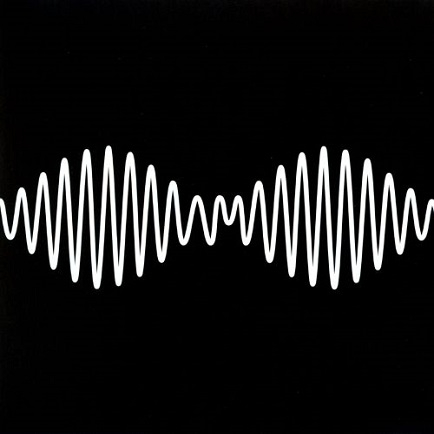
By Chris Burke
R U Mine's fuzz guitars, grooving bass and huge-sounding, up-front rock drums make this one a great test of your system's sense of fun, specifically its ability to keep you hooked on the tune's irresistible playfulness. The band sound like they're having a blast playing off each other, the guitar-and-bass riff inviting the drums to a little call and response, creating a live, almost improvised feel.
While the bass and guitar are locked in tightly for the main groove, the string bends and surf-like twangs orchestrated throughout will be a good test of your system's ability to translate the different tonal colours painted here. The frequent pounding drum fills are stopped on a dime, and punctuate the track in often less-than-expected ways, which will benefit from a set-up that can also deliver plenty of punch and attack. At the top end of the sonic spectrum, the band's R'n'B-influenced falsetto backing vocals should sound distinct and clear behind Alex Turner's lead, yet all these strands should sound locked together in a cohesive mix, but with still enough freedom to express that sense of fun too.
Elbow - Grounds For Divorce
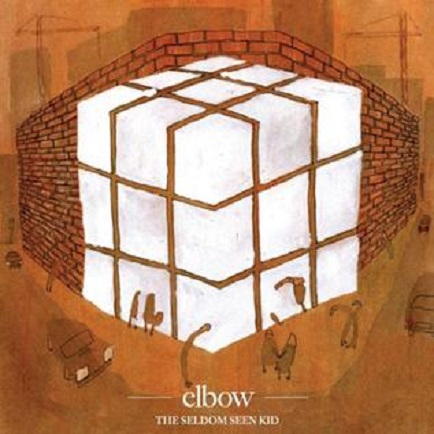
By Harry McKerrell
Guy Garvey-fronted indie darlings Elbow aren't necessarily the band that you'd most usually associate with bass-driven rock bangers, but there are few efforts that make the earth shake beneath your feet quite like the fourth track from 2008's fantastic The Seldom Seen Kid.
A far departure from the harmonious, almost symphonic strings and piano that defined One Day Like This, another of the band's signature tunes that also finds a home on The Seldom Seen Kid, Grounds For Divorce is a far harder, dirtier affair propelled by Garvey's working-class lyricism and some joyously overdriven, grinding guitar. Feel the relentless kick, snare, kick, snare repetition of the percussion before that guitar sound blows the wax from your ears.
Whitesnake - Still Of The Night
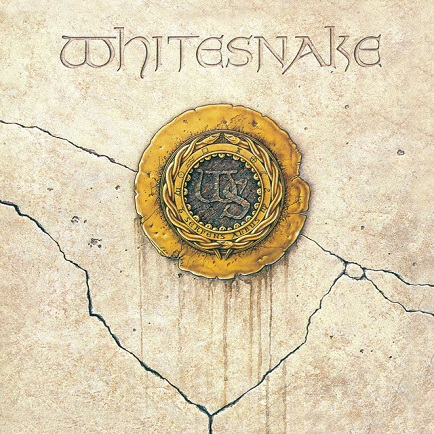
By Chris Burke
Eighties rock didn't get much grander than Whitesnake's 1987 opus; an ambitious (for some, perhaps 'overblown') Zeppelin-esque, orchestral rock ballad. There's no denying the song's sense of excitement as its numerous dynamic shifts carry the track to its climactic conclusion. The stop-time sections, multiple breakdowns, huge-sounding drums, heavy riffs, insistent cellos and choir-like synths will be a stern test of your system's organisation.
If your set-up is doing its job, the different instrumental strands should be easy to pick apart, with the simple, pounding bassline as clear and distinct at the bottom end as the guitar squalls prick your ears at the higher frequencies, with the leading edges of notes clearly communicated. David Coverdale's expressive centre-stage vocal needs to be conveyed with every sweaty ounce of its emotion and, dare we say it, big-haired rock sexiness intact too.
The Rolling Stones - Gimme Shelter
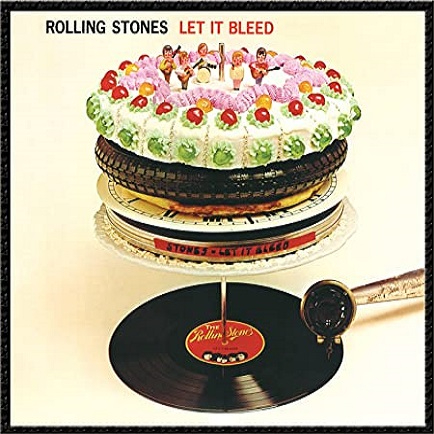
By Harry McKerrell
An incomparable anthem plucked straight from rock’s golden era, Gimme Shelter remains not only The Stones’ finest hour but arguably one of the greatest songs of all time. Often framed in association with the turbulence of the Vietnam War and the violence and transition occurring at the end of the ’60s, Gimme Shelter is the standout track amid Let It Bleed’s catalogue of excellence.
There’s almost nothing else that sounds alike, nothing that really matches Keith Richards’ soulful but slightly muted guitar sound or Jagger and gospel singer Merry Clayton’s frightening wailings of “War, children, it's just a shot away, it’s just a shot away”. An exciting, terrifying, soulful, dreadful tempest of a record, each element coalesces to produce perhaps the definitive rock and roll experience.
Marillion - Lavender
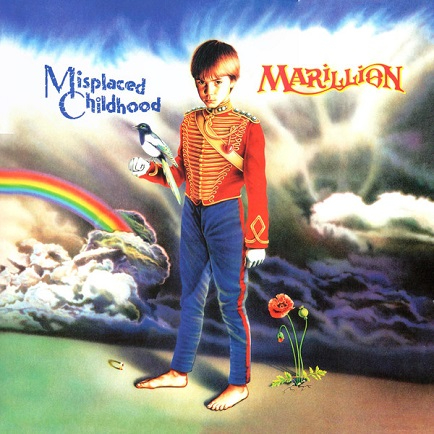
By Alastair Stevenson
Lavender is an iconic song by British rock-prog legends Marillion. It was released all the way back in 1985 as the second single for the band’s Misplaced Childhood concept album – which placed number one in the UK charts and led to a fairly entertaining performance on Top of the Pops at the time. We love it as a test track for two reasons.
Firstly, the short but sweet album version of the song is full of textured overlapping parts that slowly build over its two-and-a-half-minute playtime. Starting with a wonderfully minimalist intro that’s atypically played on a grand piano as opposed to an electric keyboard, the song builds before peaking in a crescendo of sound with tight, powering drum rhythms and the shimmering, bright guitar parts that make up such a big part of the band’s iconic sound.
This makes it a really good short but sweet test track that pushes the high and mid-range in a speaker set-up and offers a wonderful gauge of its dynamism.
Secondly, it's a wonderful story. Where most prog epics focus on adventures in space and epic battles between knights and dragons, Lavender’s subject is so much more simple – an epic retelling of a burgeoning young love on a council estate.
David Bowie - The Jean Genie
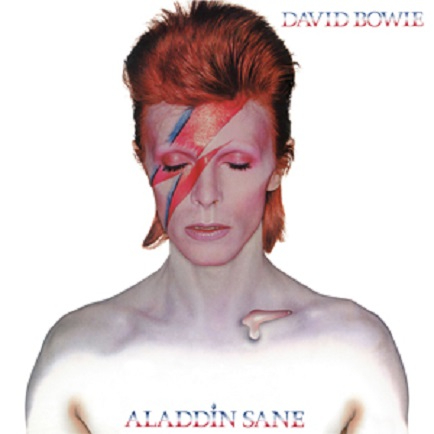
By Chris Burke
David Bowie's genius in creating music that, even on record, sounds like it's being performed rather than just recorded, makes his material ideal for testing your system's transparency. The Jean Genie was apparently written quickly, and its chugging three-chord R&B rhythm, combined with that 'thrown together' feel, give the track its punch and immediacy. But don't be fooled; this is Bowie, and thus each musical element is both perfectly placed and a joy to focus on (while of course not going so far as to not 'hear' the track as a whole), from the opening guitar strumming that appears from your left speaker, quickly joined by the bass run-down from the right, to the rattlesnake percussion, hand claps and harmonica that soon join in.
Bowie's characterful vocal delivery is front and centre, and if you can't pick out all the deliberately 'lazy' phrasing, pauses, breaths and 'woo-hoos' here, your system isn't doing enough by way of information retrieval. By the time you reach the climactic outro, with Mick Ronson's insistent guitar following the percussive rattle, you should feel as though the Spiders just came up with the song right there in your listening room.
Pink Floyd - Time
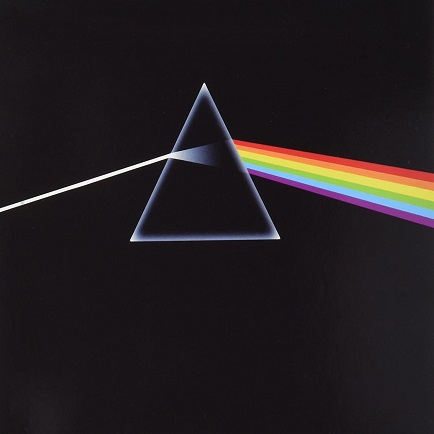
By Harry McKerrell
Pink Floyd have always been a perennial favourite for hi-fi enthusiasts looking to test, or more likely show off, their latest high-end setups. As one of the UK’s most notoriously perfectionist prog-rock innovators, Floyd have always lent themselves to the world of people a bit too interested in woofers, tweeters and driver diameters.
Time is a textbook example, a seven-minute epic that starts with ringing alarm clocks and clanging bells before transmuting into slow, fuzzy chords followed by funk-infused licks and wailing, mournful gospel accompaniments.
There’s so much going on in this, one of the best tracks from Dark Side Of The Moon, that you’ll really notice whether or not your system is giving each element the respect and space it needs. Perfect for assessing how your set-up deals with a challenging musical smorgasbord, especially if you can ignore the lyrics persistently informing you that you've wasted the best years of your life.

Harry McKerrell is a senior staff writer at What Hi-Fi?. During his time at the publication, he has written countless news stories alongside features, advice and reviews of products ranging from floorstanding speakers and music streamers to over-ear headphones, wireless earbuds and portable DACs. He has covered launches from hi-fi and consumer tech brands, and major industry events including IFA, High End Munich and, of course, the Bristol Hi-Fi Show. When not at work he can be found playing hockey, practising the piano or trying to pet strangers' dogs.
- Lewis EmpsonSenior Staff Writer
- Alastair StevensonEditor in Chief
- Chris BurkeProduction Editor
- Kashfia KabirHi-Fi and Audio Editor
- Becky Roberts
-
MrVanDango Reply
Omitting Ogden's Nut Gone Flake. Any song on that album will test your speakers. The album is a masterpiece of early stereo recording.What Hi-Fi? said:Not sure if your speakers are up to scratch? These cast-iron classics will give your hi-fi system the vigorous rock workout it demands.
Best British rock songs to test your hi-fi system : Read more -
dad4x When i was a lad, a go to track was Bad Company, by that band. Album opener, well recorded with a quiet opening that invited turn it it up, then the band comes in. Very dynamic.Reply
